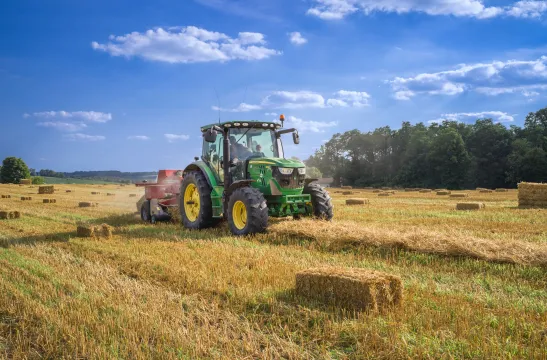Active banners: 0 Visible banners: 0
How Will Climate Change Impact Agriculture?
Provided by: Rutgers Climate Institute |Published on: April 27, 2021
Videos
6789101112
Synopsis
- This video from Rutgers Climate Institute outlines the ways that farmers, specifically in New Jersey, will be impacted by unpredictable weather events as a result of climate change.
- Students will understand how agriculture will be impacted by droughts, heavy rains, and other weather events.

Subjects: Biology, Earth and Space Sciences, Economics
Authors: Rutgers Climate Institute
Region: Global, New Jersey
Languages: English
Teaching Materials
Positives
- The video is brief while still able to make a convincing argument that climate change will impact our agricultural systems and the ability to rely on certain staple foods.
- Although it is focused specifically on agriculture in New Jersey, the content can be applied to agriculture globally.
Prerequisites
- The content of the video ends at 2 minutes, 26 seconds, and the remaining time is the credits.
- Students should understand why agriculture is dependent on predictable weather patterns and how rising global temperatures lead to unpredictable weather patterns.
Differentiation & Implementation
- Students who want to learn about agricultural solutions to climate change can look into regenerative agriculture resources, including How Regenerative Agriculture Curbs Climate Change and How Regenerative Farming Can Help Combat the Climate Crisis.
- Students can use the resource, The Effects of Climate Change, to determine how farmers will specifically be impacted by climate effects.
- Economics classes can evaluate how the economics of agriculture and our food systems will have to adapt to the changes in weather patterns.
- Science classes can use this video and this other related resource for lessons about the water cycle, which is altered by the increase in global temperatures.
Scientist Notes
Teaching Tips
Standards
Resource Type and Format
All resources can be used for your educational purposes with proper attribution to the content provider.



